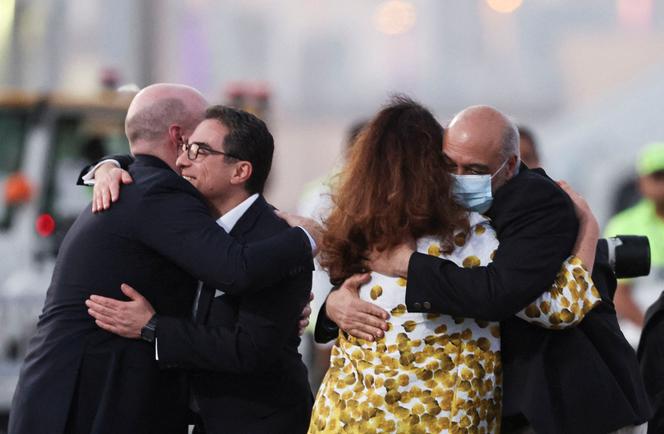


The negotiations were long and delicate. On Monday, September 18, five US nationals held illegally in Iran were released as part of a prisoner exchange between Washington and Tehran. The hostages boarded a plane provided by Qatar, which acted as an intermediary along with Switzerland. The agreement provides for the release of five Iranians imprisoned in the United States. It also includes a financial component: the transfer of $6 billion in oil revenues belonging to Iran from a frozen account in South Korea to an account in Qatar. The money will be used by Tehran under US supervision for strictly "humanitarian" purposes.
In early August, four of the five US prisoners were released from the notorious Evin prison and placed under house arrest. Their return to the US a month later, "after years of torment, uncertainty and suffering," according to Joe Biden, is no coincidence. It coincided with the week of the UN General Assembly in New York, where Iranian President Ebrahim Raisi was present. No meeting between the two leaders is scheduled. The release also comes on the first anniversary of the death of Mahsa Amini, a 22-year-old woman tortured and killed by the Iranian morality police. The tragedy led to the groundbreaking civic movement Woman, Life, Freedom.
"This agreement in no way changes our relationship with Iran," a senior US official explained to the press. Iran is an adversary and state sponsor of terrorism. We will hold them accountable whenever possible." Taking foreign – and particularly American – hostages has been a defining tool of the regime since 1979 and the Islamic revolution. The last negotiation of this nature dates back to 2016 with Washington. In an open letter published while still on the plane to Qatar, businessman Siamak Namazi, detained for eight years, put heartbreaking words to this reality: "Evin prison has virtually become the dystopian United Nations of hostages." Some 20 Europeans are currently being held there.
The White House knows that the issue of the money released is a sensitive one, with many conservative voices portraying it as "the payment of a ransom" to kidnappers, following the example of Donald Trump's former defense secretary Mark Esper, on Fox News. The administration points out that these are not US funds, but Iranian money made available to Tehran to buy medical equipment, medicines and food. South Korea was determined to comply fully with the US sanctions already deployed against Iran, hence the importance of the transfer to Qatar, approved by Washington and demonstrating the absence of any complacency. On Monday, new measures against the regime were announced. "We have sanctioned more than 400 individuals and entities in 40 sanctions tranches since the beginning of our administration," recalled a senior official.
You have 47.62% of this article left to read. The rest is for subscribers only.
